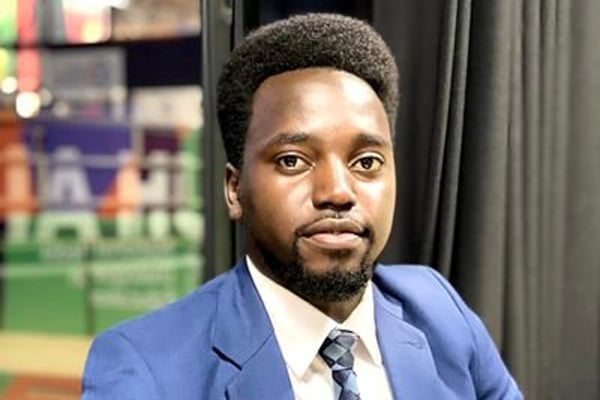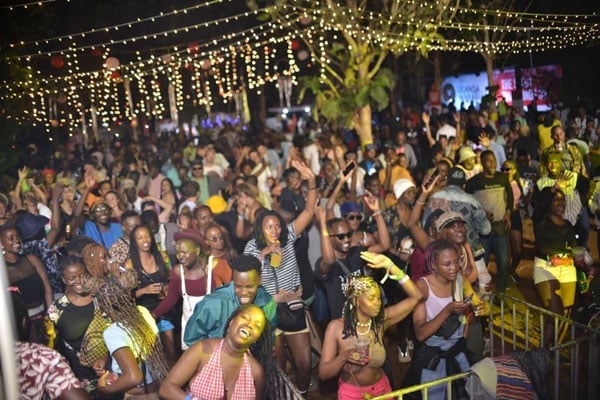Prime
Politics of Nyege Nyege: Protecting economy, or keeping voters happy?

Revellers have a good time at the recently concluded Nyege Nyege festival in Jinja City. Photo/Denis Edema
What you need to know:
- Despite many obstacles that have been thrown in the way of Nyege Nyege over the years, the arts festival that is characterised by binge drinking has always gone ahead. Some analysts argue that excessive partying doesn’t rhythm well for young people who are supposed to drive change, Derrick Kiyonga and Patrick Ssentongo write.
In the 37 years President Museveni has ruled Uganda, he showed disdain for people who drink alcohol. Museveni has always seen drinking alcohol as a sign of unsophisticated unruliness and a grave character defect and he showed this when he was instituting measures to fight the Covi-19 in 2020.
“Drunkards sit close to one another; they speak with saliva coming out of their mouth. They are a danger to themselves,” Museveni said when closing down public gatherings in March 2020.
A year later when he was passing out cadet Assistant Superintendents and non-commissioned officers for Uganda Prisons at Kololo Independence Grounds, Museveni warned of the dangers of alcohol.
“I had never tasted alcohol before, then one of my friends convinced me to. I tried beer; it’s so bitter like omululuza (bitter leaf). I asked why they were drinking it, he told me ‘You’ll know the sweetness later.’ I tried Johnnie Walker and it was like fire,” Museveni said.
“Don’t squander yourself with alcohol and malaya [prostitution]. As an old man, I can tell you the advantage of discipline is good. You see me, in September I will be 77 years but I don’t have space for alcohol. I have never known why people drink alcohol.”
Yet even for his apparent dislike for alcohol and the night life, Museveni, unless advised by doctors like in the case of Covid-19, doesn’t want to interrupt partying.
Closure of discos
For instance, when the Allied Democratic Forces (ADF) rebels attacked Lhubirira Secondary School in June, in the process killing 25 students, Joe Walusimbi, the Kasese Resident District Commission (RDC), ordered the closure of discos, but Museveni disapproved the move.
“I saw some RDC closing night discos. No, Ugandans like partying. You cannot close the bazukulu. We shall discuss the ADF issue. Let the bazukulu [grandchildren] enjoy the nightlife, but tell me what to do when an issue arises. We defeated ADF long ago. The fact is that they can no longer operate in military groups; now they operate as individuals,” Museveni said.
A similar situation arose for last weekend’s Nyege Nyege festival hosted in the eastern Jinja City. Ever since it was inaugurated in 2015, the Nyege Nyege festival, which is billed as drawing connections between Africa and the rest of the world – with Cumbia from South America, vodou jazz from Haiti, and underground hip hop from America – has provoked varied responses.
On grounds that the festival would promote deviant sexual behaviour, in 2018 then minister of Ethics and Integrity, Rev Fr Simon Lokodo, who has since passed on, asked the minister of Internal Affairs and the Inspector General of Police to block it.
“The nature of this event has attracted the attention of several stakeholders who have taken a keen interest in it. Consequently, I have received credible information from religious leaders, opinion leaders, and local authorities that the person of this festival, in the last two years, has been compromised to accommodate the celebration and recruitment of young people into homosexuality and LGBT movement,” Lokodo said.
“Whereas the anti-homosexuality law was challenged in courts of law, the practice of deviant sexual behaviours has never been condoned in this country as such, it is our responsibility as a government to protect the citizens against such vices,” Lokodo added, but the festival was never blocked.
In 2022, Parliament directed the cancellation of Nyege Nyege, over concerns of immorality. Presenting a matter of national importance, Tororo Woman MP Sarah Opendi said the event, which goes on both day and night for three days, breeds immorality, including recruitment and promotion of homosexuality.
“What is the government’s position on this growing immorality in this country, it is going to attract all kinds of people all over the world, bringing all kinds of activities that are non-African, non-Ugandan into our communities?” Opendi quizzed.
The government’s defence of the festival has been that it plays a major part in Uganda’s tourism sector, with more than 8,000 tourists flying into Uganda, in the process of booking hotels and paying for entry tickets.
“As we speak now, around 8,000 foreigners have already paid tickets and have booked to come and sleep in this country,” Martin Mugarra, the minister of State for Tourism, said last year before Cabinet cleared the event on grounds that the festival will be organised within procedures laid by the Directorate of Ethics and Integrity.
This year’s festival was interrupted when the US and UK governments advised their citizens not to step foot at the festival.
At first, the US Embassy in Kampala issued a warning that was rather vague. The embassy said due to an increase in terrorist activity, it was recommending that individuals exercise an elevated degree of caution and reconsider attendance at upcoming large public gatherings, such as large scale worship services and music and cultural festivals in Kampala and Jinja.
Additionally, the American embassy warned its citizens to be mindful when visiting locations where people tend to gather such as hotels, malls, and marketplaces.
A few days before the event, the American embassy directed not only American citizens but also its staff to stay clear of the Nyege Nyege festival. The UK government issued a similar travel advisory.
“The FCDO (Foreign, Commonwealth and Development Office) advises against all but essential travel to Jinja Town. There is a growing terror threat in Uganda, including the targeting of foreigners. Avoid large gatherings, including large scale worship, and music and cultural festivals in Uganda,” the statement by the UK High Commission read in part.
But these warnings by the global powers weren’t going to stop Nyege Nyege as Museveni promptly responded.
“The security forces are guarding the pre-prepared public functions like the Nyege Nyege, the Kyabazinga wedding, etc.” the President assured the public, referring to the Busoga king who was expected to get married yesterday.
Uganda has had a history of terrorists targeting mass gatherings like the case in 2010 when simultaneous explosions killed at least 76 people and injured many others who were watching the football word cup final at Kyadondo Rugby Grounds and Ethiopian Village Restaurant in Kabalagala.
In fact, Edris Nsubuga, who was given a 25-year jail sentence on his own plea of guilt for terrorism, told the court of how they sneaked the bombs into Kyadondo Ruby Grounds after taking advantage of a security lapse.

With the Western world seemingly out to discredit Uganda’s security standing, Museveni used the Nyege Nyege event to downplay their claims.
With this year’s Nyege Nyege having six stages, government constructed a security ring around the event, giving would-be terror planners no chance.
“I would like to commend and congratulate Ugandan sister security forces; Uganda Police Force and the UPDF for a job well done, securing Ugandans and foreign tourists at the Nyege Nyege festival,” said Maj Gen Kahinda Otafiire, the minister of Internal Affairs.
After successfully forming a security ring around Nyege Nyege, which Museveni said is infested with “suspected sinners”, he went on to interpret this as a geo-political victory he had registered over the West.
“Indeed, I hear that the panicking Americans and British sent out what they call advisories to their citizens not to come to Uganda. These are mistake makers. If the situation was so bad, it would be us to advise people not to come to Uganda, not the British and the Americans,” Museveni said.
“We know what we are doing, always. Even if a mistake occurs, we know how to handle it. These advisories by some of these actors are another form of interference in our internal affairs by these elements.”
Nyege Nyege is associated with binge drinking, which gives credence to reports that have suggested that 75 percent of Uganda’s population habitually engages in varying levels of alcohol consumption.
In fact, studies from Makerere University have indicated that young people in Uganda, including university students, report alcohol use prevalence of 31 percent to more than 50 percent.
Low- and middle-income countries settings such as Uganda have a rapidly growing and poorly regulated alcohol industry and are characterised by increasing availability and affordability of alcohol for young people, as well as limited support for those experiencing alcohol-related problems.
Uganda, like most countries in the Horn of Africa, has a young population. The last census carried out in 2014, found that 78 percent of the total population was under the age of 35, and 20.6 percent of the population was between 15 and 24 years old.
In politics, young people make up nearly half of all registered voters with approximately 6.4 million young voters under 30 years of age.
Nevertheless, even with their strength in numbers, young people in Uganda face huge economic, political, and social challenges.
According to the World Bank, while about 700,000 young people reach working age every year in the country, on average only 75,000 jobs are created annually.
This has resulted in snowballing frustration due to tough economic conditions and a feeling of missed opportunities to make it in life.
“It’s very hard for a drunk population to challenge the status quo. In the open, they might say they care but in a real sense, the regime doesn’t mind if young people are drinking themselves silly…” Yusuf Sserunkuma, a socio–politico analyst, says.






